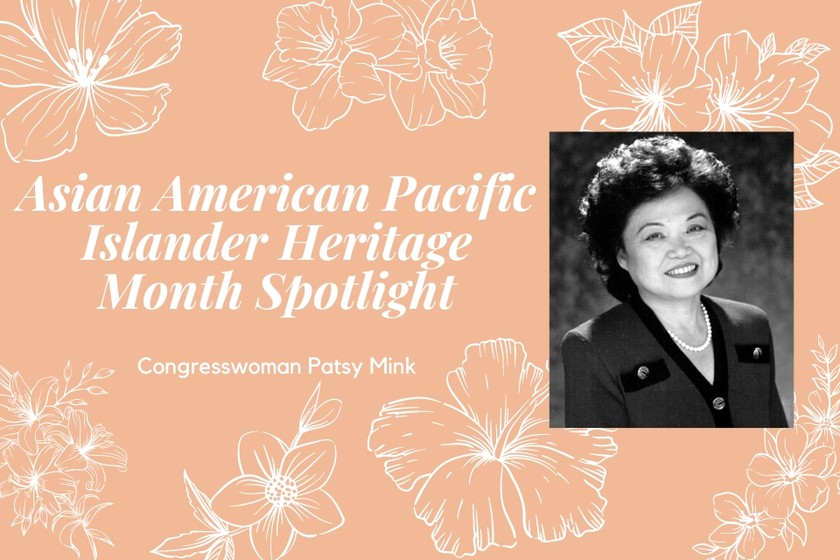
Patsy Mink was born in Paia, Hawaii on December 6th, 1927, to second-generation Japanese immigrants. She attended Wilson College in Pennsylvania and the University of Nebraska, but eventually transferred to the University of Hawaii due to facing discrimination at her previous universities. While still attending the University of Nebraska, Patsy became the president of the Unaffiliated Students of the University of Nebraska, a student government for students of color formed in response to students of color being excluded from greek life and dormitories. She successfully lobbied for the integration of NU dormitories and greek life before transferring. Patsy graduated from the University of Hawaii in 1948 with a degree in zoology and chemistry, and went on to attend law school at the University of Chicago, earning her Juris Doctor degree in 1951.
While attempting to begin her professional career as an attorney, she faced several barriers on the basis of her gender, including territory laws at the time that erased her Hawaiin origin and declared her a resident of her husband’s state of Pennsylvania. She was able to successfully advocate for herself, and in 1953 she passed the bar exam and became the first Japanese-American woman licensed to practice law in the state of Hawaii. She opened her own law firm, and began to get involved in local politics.
In 1965, Pasty was elected to the United States House of Representatives for the state of Hawaii, making her the first woman of color and the first Asian-American to be elected to the House of Representatives. During her career in the House of Representatives, Patsy worked on a wide variety of bills regarding racial and gender equality in education and child-care, and co-authored the Title IX Amendment of the Higher Education Act. The amendment prohibits discrimination based on gender within federally funded higher education institutions. Title IX was passed in 1972, and in 2002 it was renamed the Patsy T. Mink Equal Opportunity in Education Act in her honor. Her first stint in congress ended in 1977, and she returned to congress from 1990 through 2002. During her second tenure in congress, Patsy continued to work on legislation related to socio-economic inequality, gender inequality, and workplace safety. Patsy also co-founded the Congressional Asian Pacific American Caucus, and served as the co-chair for the House Democratic Women’s Caucus.
Patsy was a trailblazer for gender and racial representation in U.S. politics. She was a strong advocate for racial, socio-economic, and gender equality, and an advocate of equality in education and the workplace. Her contributions to these issues are still felt to this day and have left a lasting mark on the U.S. political landscape and education.
If you’re interested in a career in law or politics and want guidance and advice, you can make an appointment with one of our Career Coaches at the Center for Career Development!
